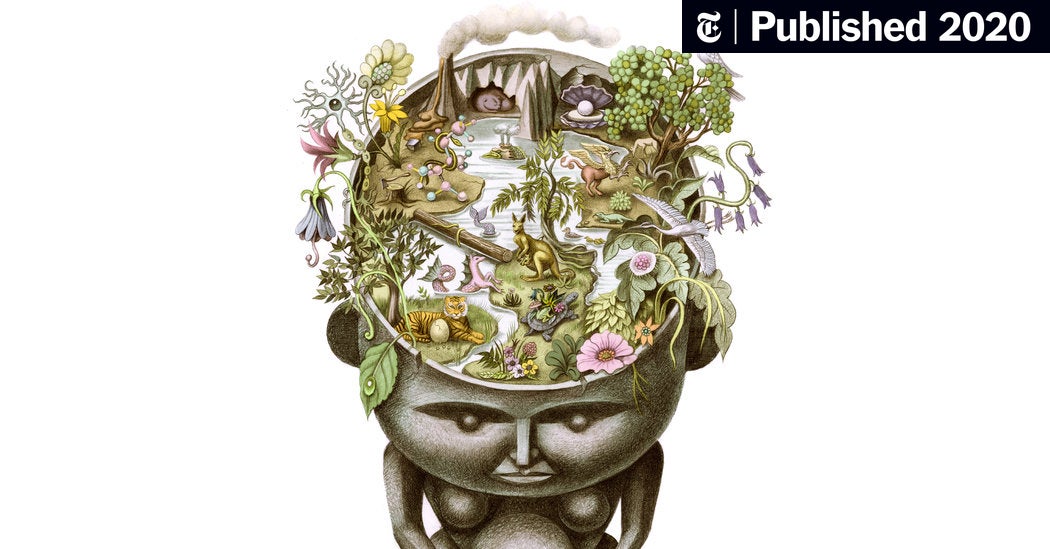How parenthood and pregnancy kick-start neurological development.
A pregnant woman can expect to experience a host of physical changes when she becomes pregnant. These include morning sickness and exhaustion. She may also notice loosening bones, swelling, increased blood pressure, dry eyes, and hair and skin modifications.
But what happens to her brain, then? We don’t know.
Researches from all over the globe have been trying to answer this question. The results are shocking: It seems that a woman’s brain may change faster and more dramatically during pregnancy and postpartum than at any other time in her life, including puberty. These brain changes could be the result of some of the most frustrating and stereotypically disappointing side effects of having children, such as the period of forgetfulness that occurs during motherhood (also known as “mommy Brain”), and the major mood swings that come with pregnancy.
The study was published by researchers from the Imperial College of London in 2002. It involved taking images of 14 women who were pregnant before, during, and one year after giving birth. The researchers found that some areas of the brains of pregnant women shrink during pregnancy, while others expand after birth. It was not clear how these changes affected behavior.
Motherhood Makes You Different
- How motherhood changed my…
- Portraits of single moms by choice
- This is Your Motherhood Brain
- Is my Child’s name a way to erase my identity?
- You can impersonate motherhood
- Mothers don’t have to be martyrs
- Being a new mom with ‘Old Depression’
- I’m darker than my daughter. This is Why It Matters.
- When your name becomes a ‘Mom”
Elseline Hoopzema, Ph.D., is a senior neuroscientist at Leiden University, the Netherlands. She published a study that built upon the 2002 study. Dr. Hoekzema conducted M.R.I. with her coauthors. Dr. Hoekzema and her coauthors performed M.R.I. scans on 25 first-time mothers, both before they became pregnant and again after giving birth. These scans were compared to brain imaging of 20 other women, who found that they were vastly different.
Recent births of women had so many biological changes in their brains, that a computer algorithm could distinguish the mothers who gave birth from those who hadn’t. The brains of women who had recently given birth showed a reduction in gray matter, which lasted for as long as two years.
Gray matter in the brain, which is located in the outer layers of the brain, plays an important role in muscle control as well as in execution of high-level tasks such seeing, hearing and processing memories, emotions, and decision making. White matter is also found in the brain. This white matter helps brain signals travel farther and faster, and encourages motor and sensory function. According to Dr. Hoekzema, gray matter volume decreased while the white matter in pregnant women’s brains didn’t change at all during pregnancy or new motherhood.
Dr. Hoekzema suggested that some of these changes may be due to a process called “synaptic pruning,” which is a brain phenomenon that removes certain connections between brain cells in order to facilitate the formation of new ones. This process may help people to focus on certain behaviors or activities, such as taking care of an infant. According to Dr. Hoekzema, while it might seem that a “loss of brain material” is a negative thing, the changes can actually be beneficial for people who are faced with new circumstances like parenthood.
Catherine Monk, Ph.D., a professor of medical psychology at the NewYork-Presbyterian/ Columbia University Irving Medical Center, speculated that this pruning might even be the cause of “mommy brain.” In Dr. Hoekzema’s study, the images showed reductions in gray matter in the hippocampus, which is largely responsible for regulating memory. Instead of focusing on insignificant information like movie titles, your pregnant brain or new-mom brain might reallocate resources towards the brain areas that control “theoryof mind.” This allows you to determine what another person wants and needs. Dr. Hoekzema suggests that synaptic pruning may even foster mother-baby bonding.
Dr. Hoekzema stated that she had never seen such drastic changes in her brain, and compared her 2016 study with her previous research. Her study revealed that these brain changes were consistent among all moms, regardless of their life experiences.
The study of Dr. Hoekzema was also a boon to women’s health researchers, particularly those who study motherhood and pregnancy, as it confirmed what many have suspected for years: New motherhood and pregnancies are important for brain function.
Jodi Pawluski (Ph.D.), a researcher at the University of Rennes, France, said, “We’re starting to see that at this point, during pregnancy, and the postpartum time, the adult brain at its most plastic.” The brain’s ability for self-organization is called “plasticity”.
In 2015, Dr. Pawluski published an review on available research on the mother’s brain in the journal Hormones and Behavior. This review concluded that although more research is needed, the focus on the maternal mind could help us learn more about the behavioral flexibility of all mammals. These natural brain changes are beneficial for women during motherhood but may also prove to be helpful later in life when they need to care for their grandchildren or take on other caring roles.
Dr. Pawluski’s research already builds on Dr. Hoekzema’s. She discovered a decline in the production and use of neurons in the brain responsible for memory. She also found a rise in brain connections in postpartum mice in her current research. She said, “I like to believe that all these brain changes lead some kind of more efficient behavioral outcomes.”
Dr. Hoekzema is also continuing her focus on the maternal mind; she is trying to learn more about how gray matter loss correlates with motherhood-specific behaviors.
Dr. Hoekzema stated that “Of course these massive brain changes must have an impact on the functional function, but what functions are actually altered by these brain modifications?” How does this relate to maladaptive changes, such as postpartum depression?
Dr. Simone Vigod M.D. is a woman’s health psychiatrist who also heads the department of psychotherapy at Women’s College Hospital in Toronto. She is currently mapping the maternal brain. Because of safety restrictions and busy schedules, it is difficult to recruit pregnant women and mothers for studies. It can be difficult to find funding for women’s health research. Dr. Vigod is still looking for ways to treat mood disorders in pregnancy without the use of medication. She believes that postpartum depression and anxiety can be caused by synaptic pruning or brain reorganization.
While more research is required, evidence suggests that brain changes in new parenthood may not only affect mothers. Fathers and nurses in NICU and nannies could experience brain functions shifts to help them be more effective guardians when caring for a child. Helena Rutherford is a researcher at Yale School of Medicine’s Child Study Center.
Dr. Pawluski recalled her own experience of forgetfulness during pregnancy and said that “To move forward we need people who acknowledge the value, importance, and transition to parenthood.” She described the experience as unsettling and said that it reminded her of how educating parents about the possible causes can be very affirming in a difficult time.
She said that the birth of a child has a profound impact on parents. “If I can share knowledge with other people about this, I feel I’m doing what I do best.
Jenni Gritters is a freelance journalist based in Seattle. She covers health, psychology and travel.


























